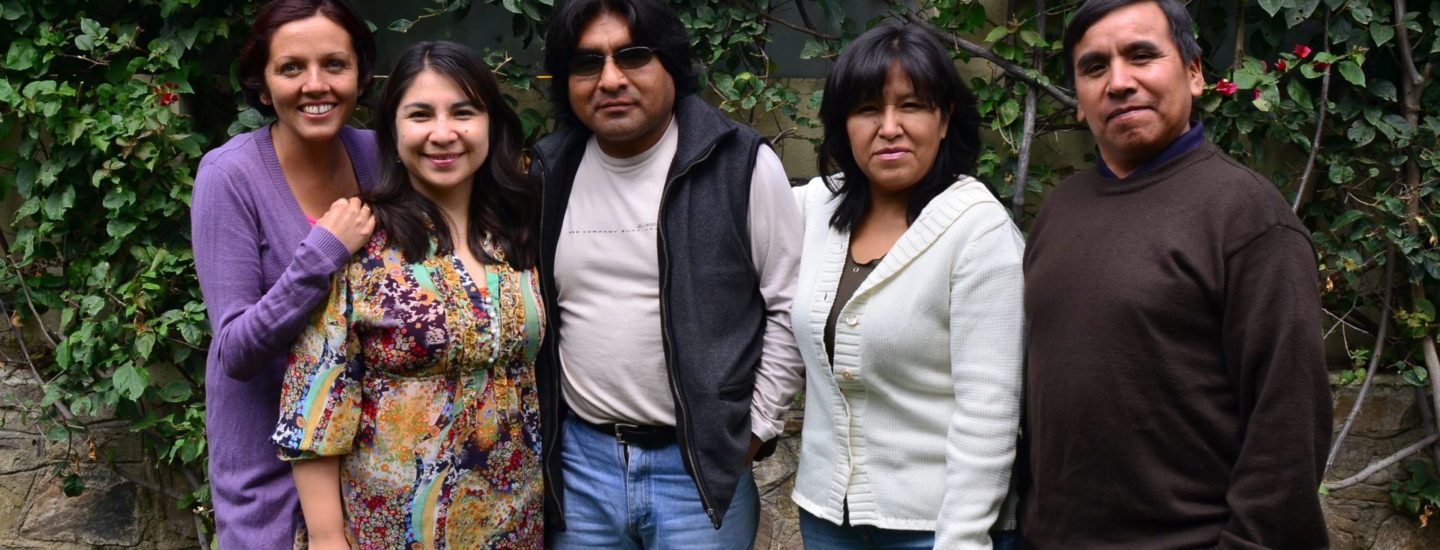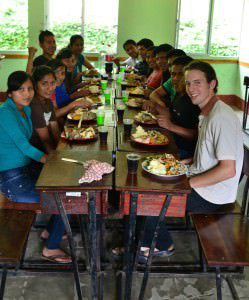Embrace language on International Mother Language Day

Editor’s Note: The following post is written by Nate Mortenson. Viviana (mentioned in the post) is fourth on the right in the featured image.
I want to share a story from a former teacher of mine at the Merryknoll Language Institute in Cochabamba, Bolivia. Her name is Viviana and she was born and raised in the country outside the city of Cochabamba.
Growing up her folks spoke Quechua, one of the most commonly spoken indigenous languages in Bolivia. Generally speaking, Quechua is spoken in the middle departments of Bolivia, Aymara in the northern departments, and Guarani in the southern.
These indigenous languages are not closely related linguistically, but are the most common languages in Bolivia after Spanish.
As a little girl, her family spoke only Spanish, but her grandparents spoke Quechua. Viviana learned Quechua from hearing her grandparents speak it in the house, but once her family discovered she was able to understand and speak the language, they pressured her to never speak it at school, even when asked by teachers if she knew the language.
During her childhood, and even today, being able to speak an indigenous language carries a lot of cultural, economic, and societal baggage. Had she spoken Quechua in her elementary classroom, she might have suffered the shame associated with speaking an indigenous language from her peers, possibly being treated as “uneducated”, “ignorant”, or any string of racist and classist sentiments towards indigenous peoples who traveled to the city to attend school like she did.
It is classism at play. Spanish speaking students from the city have more economic status than the students from the country whose parents are more dedicated to agriculture or trade skills.
Viviana is an unusual case that did learn to speak Quechua in the household. Sadly this is not the story of most of my students at the university in Carmen Pampa. As a college degree requirement, they are required to ‘know’ a second language. Most of them should be able to test out of any of the indigenous languages, but since they grew up speaking only Spanish in school, they are unable to test out of the second language exams.
Instead they must opt to take the English I & II courses at the university. Watching this first hand has shown me the sadness of language colonialism and the slow death of indigenous languages here. Spanish, and of course English, are languages of economic opportunity, so my students couldn’t be bothered to go back to their roots and learn Quechua or Aymara.
For International Mother Language Day, let’s keep this story in mind; that all cultures are relevant and none is superior to another. And neither are their languages. They are part of our identity and our history and no one should be attacked for that. Embrace our languages for being contributions to larger cultural mixing pots to make our world the wonderful place that it is.
Want to be like Nate? Apply now!
[button type=”small” color=red url=”/programs/long-term-overseas-mission/”]Become an FMS lay missioner[/button]
Tagged in:

